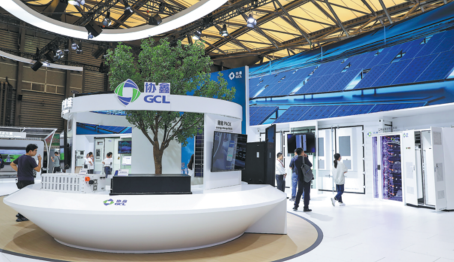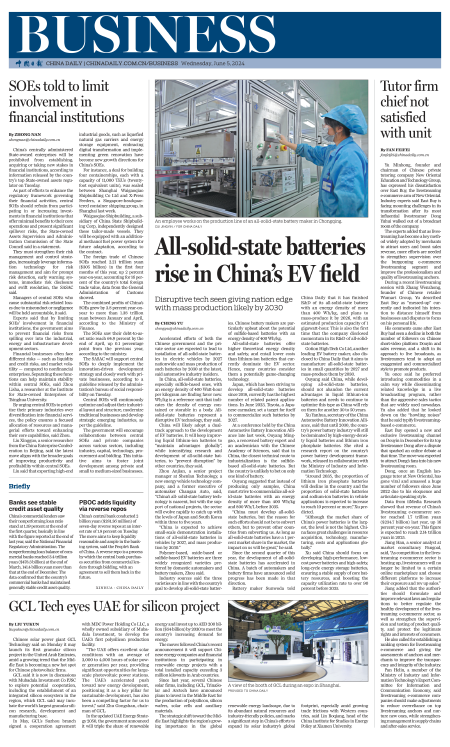
A view of the booth of GCL during an expo in Shanghai.
Chinese solar power giant GCL Technology said on Monday it may launch its first granular silicon project in the United Arab Emirates, amid a growing trend that the Middle East is becoming a new hot spot for Chinese photovoltaic firms.
GCL said it is now in discussions with Mubadala Investment Co PJSC to explore potential cooperation, including the establishment of an integrated silicon ecosystem in the region, which GCL said may incubate the world's largest granular silicon research, development and manufacturing base.
In May, GCL's Suzhou branch signed a cooperation agreement with MDC Power Holding Co LLC, a wholly owned subsidiary of Mubadala Investment, to develop the UAE's first polysilicon production facility.
"The UAE offers excellent solar conditions with an average of 3,000 to 4,000 hours of solar power generation per year, providing significant opportunities for large-scale photovoltaic power stations. The UAE's accelerated push toward new energy development, positioning it as a key pillar for sustainable development, has also been a compelling factor for us to invest," said Zhu Gongshan, chairman of GCL.
In the updated UAE Energy Strategy 2050, the government announced it will triple the share of renewable energy and invest up to AED 200 billion ($54 billion) by 2030 to meet the country's increasing demand for energy.
The moves followed China's recent announcement it will support Chinese energy companies and financial institutions in participating in renewable energy projects with a total installed capacity exceeding 3 million kilowatts in Arab countries.
Since last year, several Chinese solar firms, including GCL, TrinaSolar and Arctech have announced plans to invest in the Middle East for the production of polysilicon, silicon wafers, solar cells and auxiliary materials.
The strategic shift toward the Middle East highlights the region's growing importance in the global renewable energy landscape, due to its abundant natural resources and industry-friendly policies, and marks a significant step in China's efforts to expand its solar industry's global footprint, especially amid growing trade frictions with Western countries, said Lin Boqiang, head of the China Institute for Studies in Energy Policy at Xiamen University.
liuyukun@chinadaily.com.cn

